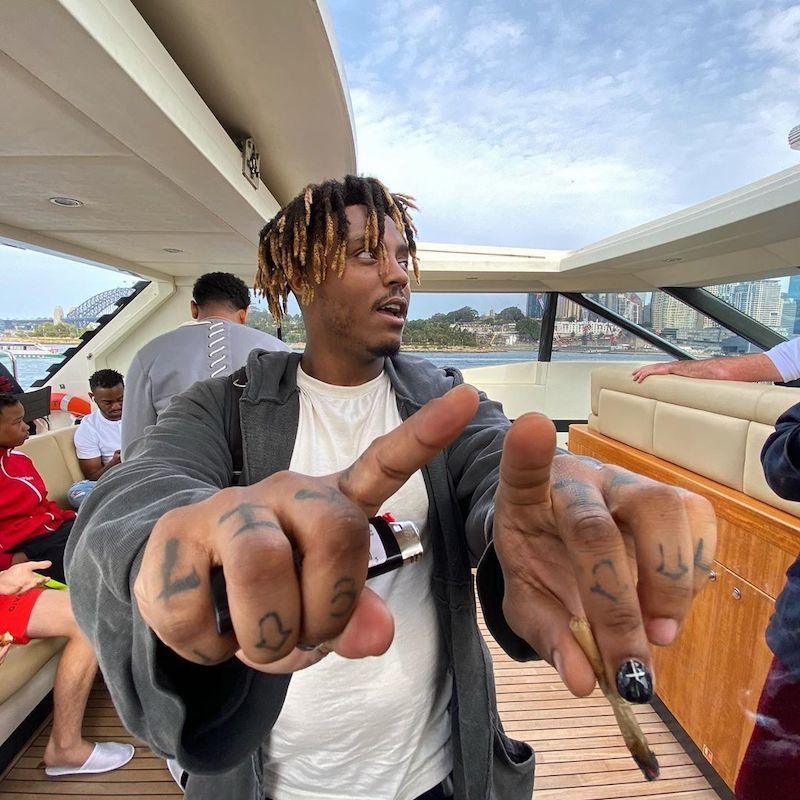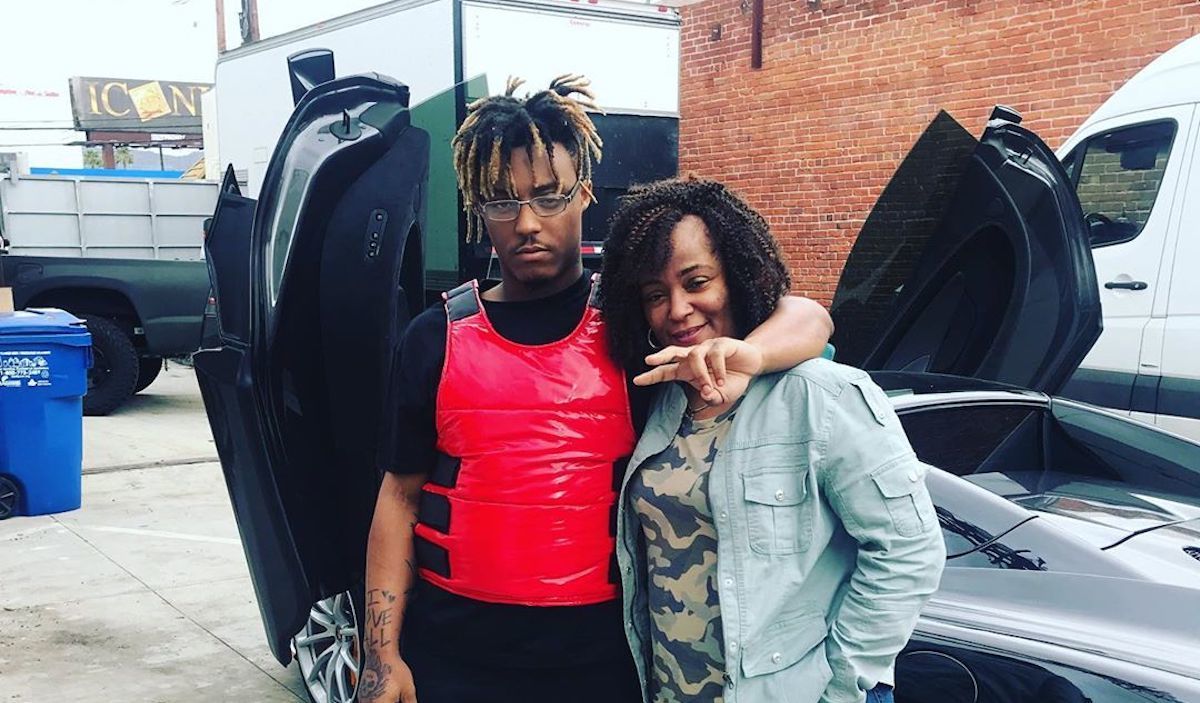Juice WRLD’S mother revealed that she always feared he would overdose.
Last year in December, the hip-hop world lost a gifted talent by the name of Juice WRLD, but for his mom, Carmela Wallace, he was just Jarad Higgins. Being the parent of an addict can be extremely difficult to navigate. Between trying to talk your child down and encouraging them to get the right help and wanting to hit them upside the head and just say, “don’t do that,” the extent of helplessness can sometimes be demoralizing and nerve-racking.
Juice’s mom, unfortunately, realized her worst fears when she lost her son before Christmas in 2019. For the first time since the rapper passed, Wallace is speaking out about the tragic experience in a new interview with ABC 7 Chicago, where she admitted that she was worried he would overdose. Wallace revealed that while it was difficult to say goodbye to her 21-year-old son, it was easy for her to decide to share his truth with the world. “It was devastating, but one thing I decided early on was, I was not going to hide the fact that he died from a drug overdose,” Wallace said. “I didn’t want to keep that secret because a lot of people deal with that every day.”
“I said, ‘if you have anxiety, then you need to get medicated properly for it instead of medicating yourself,” she continued. “I talked to him about it. I told him my biggest fear was him overdosing on the stuff. That’s why I made the decision I have to talk about it with other people. I can’t keep that as a secret.”

Carmela Wallace has since started a foundation inspired by Juice WRLD called Live Free 999 that immortalizes his legacy. In this, she hopes to reach others like her departed son who are fighting similar demons and intervene before it’s too late. “That’s our objective with our foundation. Normalize the conversation, so it has to start with me,” she explained. “I hope it’s what he wanted, was a legacy of healing. To let people know that you don’t have to suffer alone.”
Live Free 999 was established in April, and it helps people struggling with mental health and offers education, prevention, and treatment for drug abuse, including opioid addiction. Wallace said in April that she hopes proving access to these services through the organization will help other young people who are hurting, adding that Juice touched people because “he spoke to issues and situations in his music that resonated with them so deeply.”
Elsewhere in the interview with ABC 7 Chicago, Juice WRLD’s mom shared an anecdote about the first time she saw the late rapper perform. Her aim at the end of the night was only to keep him grounded after seeing how high his fans touted him that night. “Juice Wrld was an icon but Jarad was my son,” she explained. “I didn’t treat him like a celebrity. In fact, the first time I saw him perform, it was in Chicago. I forget where, but I saw the crowd and I saw the girls and ‘take a selfie with me.’ He was pumped up. He was still living with me at the time and when he came home, I said, ‘take out the garbage,’ because I just wanted him to stay humble.”
It takes a strong mother to have her worst fear realized and still find the strength to use such a tragedy as a way to help others.
